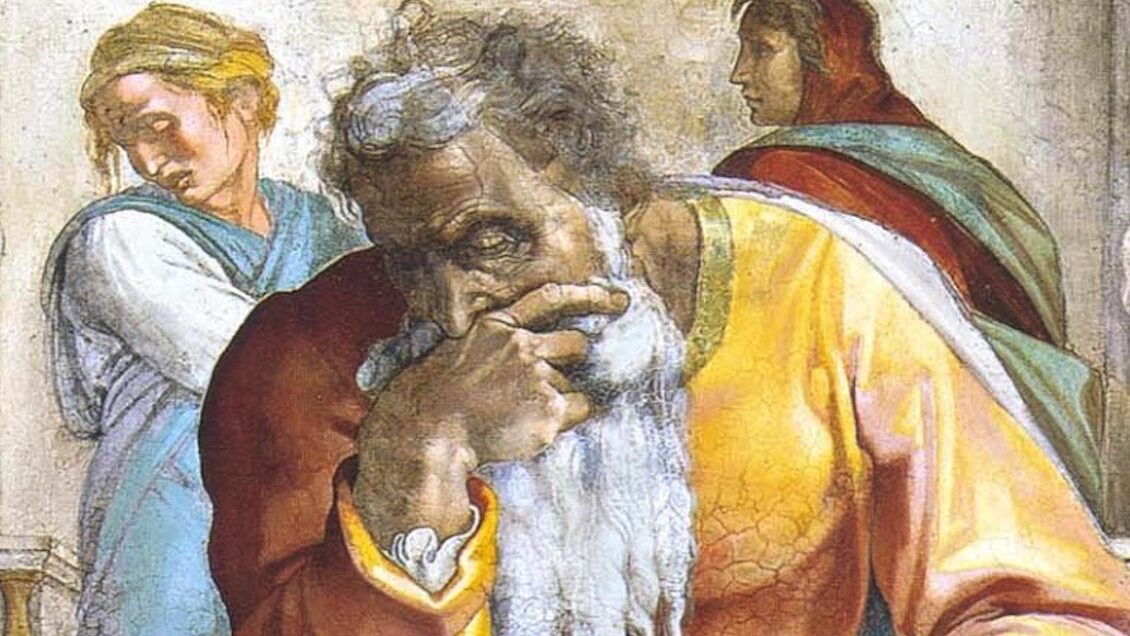The New Covenant
5th Sunday of Lent (Year B)
NOTE: For the 3rd, 4th, and 5th Sundays of Lent, the scrutinities are celebrated for catechumens preparing for baptism this Easter. The readings for Year A are always used at Masses when the scutinities are celebrated, and may be used as an option on these Sundays apart from the scrutinies. The reflection below is on the readings for Year B.
“The days are coming, says the Lord, when I will make a new covenant with the house of Israel and the house of Judah.”
Jer 31:31
The Old Testament reading this Sunday from the prophet Jeremiah is the only time we read in the Hebrew scriptures a phrase that we are used to hearing every Sunday at Mass: “new covenant.”
What is a covenant? Biblical scholar Dr. John Bergsma defines it as an agreement that incorporates one into a family. This makes a covenant fundamentally different from a contract. I might enter into a contract with a business partner defining the terms and conditions of our relationship. This contract would also establish the penalties for breaking those terms. But it does not make my business partner a member of my family.
Marriage, on the other hand, is not a contract but a covenant. Yes, there are mutual terms and expectations in a marital relationship. But the marriage agreement incorporates your spouse into your family. “The two become one flesh.” Even if one party in the marriage is unfaithful, the covenant relationship remains.
By establishing a covenant with Israel, God is incorporating them into His family. He refers to Israel as both His son (cf. Ex 4:22) and His bride (cf. Hos 2:19). But Israel was not always faithful to their part of the covenant. As God says through Jeremiah, “They broke my covenant and I had to show myself their master” (Jer 31:32). This is likely a reference to the Golden Calf incident where the people of Israel fell into idol worship after God established His covenant with them on Sinai. After this, God imposed much harsher and more numerous laws upon His people as a disciplinary measure.
But these disciplinary laws were not meant to last forever. Jeremiah prophesies about a coming day when God would establish a new covenant with His people that would not be like the first (Jer 31:32). How will this new covenant be different? The law of God will not be imposed from without but will be written upon the very hearts of the people (Jer 31:33). All will know God, without having to be taught (Jer 31:34). This will be so because God will forgive our evil doings and remember our sins no more (Jer 31:34).
This new covenant of grace was instituted by Christ at the Last Supper on Holy Thursday and ratified in His blood on Good Friday. Christ, our Paschal Lamb, has been sacrificed for the forgiveness of our sins. He is the Lamb of God who takes away the sins of the world and blessed are those who are called to His supper.
By participating in the new and eternal covenant in Christ, we have been brought into God’s family in a way that the ancient Israelites couldn’t even dream about. We have been adopted as children of God through incorporation into the Body of His only begotten Son (incorporate = to be taken into a body).
But has Jeremiah’s prophecy really been fulfilled? We look around at the world, and even within the Church, and it certainly doesn’t appear that everyone knows God. There is indeed an eschatological aspect of this prophecy that is yet to be fulfilled (the eschaton being the theological term for the ultimate end of creation). And so we still look forward to that final day when all God’s children will know Him perfectly through the beatific vision in Paradise.
But there is also a sense in which this prophecy has been fulfilled and continues to be fulfilled every time we come to Mass. Biblically speaking, “to know” often implies more than obtaining information. It refers to personal intimacy, as when Adam “knew” Eve and they begot a son, Abel.
You can know someone in this intimate sense without necessarily knowing all the facts about them. This personal, intimate knowledge is even more meaningful and profound than mere knowledge of facts. It is not the sort of knowledge acquired by reading a Wikipedia page, but the kind of knowledge you gain by sitting across the table from someone and sharing a meal, or experiencing together mutual sorrows and joys.
We are invited to “know” God in this intimate, personal way through the sacraments, especially in the Eucharist, where Christ offers His Body to us in such a way that we may incorporate Him into our own flesh. And if we fall into sin, we prepare to know Christ in the Eucharist by experiencing His mercy in the sacrament of Penance (or Confession), where our sins are truly forgiven and remembered no more.
It is through the sacraments of the Church, established by Christ, that we find the new covenant prophesied by Jeremiah fulfilled here and now; which is why the sacraments can rightly be called a foretaste of heaven.

